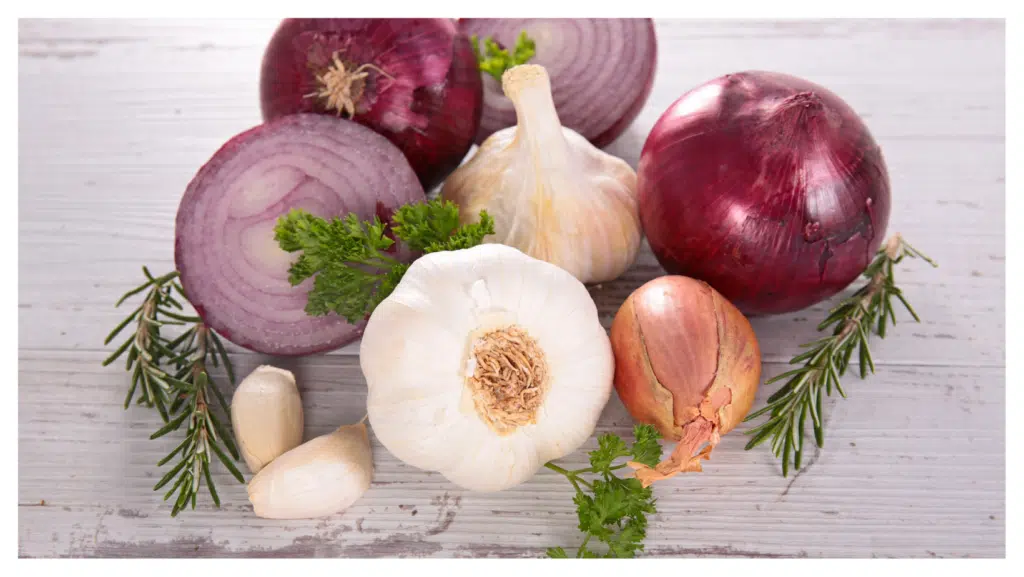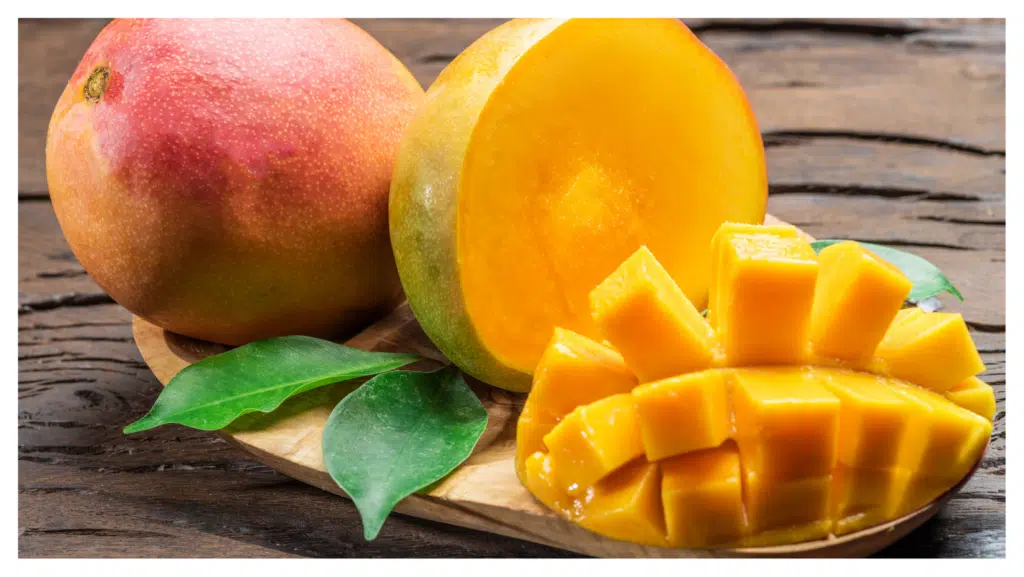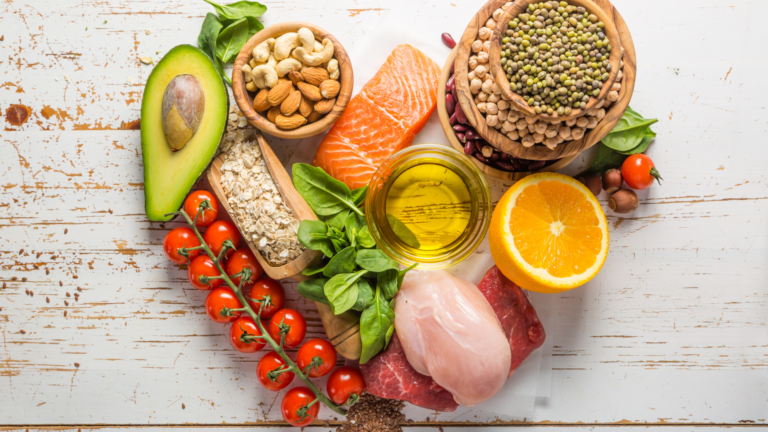If you’ve been in the gut upset world for a little bit, you’ve likely come across digestive enzymes. You may have stumbled across them in the pharmacy isle, or heard of a friend who swears by them. As dietitians, we certainly get lots of questions about digestive enzyme supplements, and whether they are helpful for calming the gut and improving digestion.
Digestion 101 – Let’s have a look at what happens in your body, after you eat
Most foods we eat contain a range of nutrients including proteins, carbohydrates, fats, vitamins, minerals and trace elements. Digestion essentially starts in the mouth – this is where food is manually broken down into smaller pieces by our teeth, and pushed down the oesophagus into the stomach. The stomach is basically a muscular pouch, that literally tosses food around and grinds it up into even smaller pieces. Kind of like a blender whips up a smoothie.
In the stomach and small intestine, the food also encounters acid and enzymes, which breaks the food down (at a molecular level) into shorter chains and then single molecules, small enough to be absorbed across the gut wall and into our blood stream. Proteases break down proteins, lipases break down fats and amylases breakdown carbohydrates.
Any molecules that can’t be broken down enough, will travel through to the large intestine, and may become food for the large colony of bacteria living here – our gut microflora. In some cases, certain highly fermentable carbohydrate molecules (FODMAPs), can cause uncomfortable symptoms. Now, let’s go through each of the FODMAP groups and discuss where enzymes can be helpful.
Oligosaccharides (Fructans & GOS):

These FODMAPs are chains of sugar molecules (“Oligo” meaning few and “saccharide” meaning sugar). Depending on the type of sugar they are made of, they are known as Fructo-oligosaccharides(fructans) or Galacto-oligiosaccharides(GOS or Galactans).
The human body does not produce the enzymes needed to breathe bonds in these sugars, and they are poorly absorbed in everyone. Because malabsorption of these sugars is normal, they can actually help keep our digestion healthy, by keeping the stool moving through at a desirable pace and feeding our gut bacteria. Gas is a normal side effect of eating oligosaccharide rich foods, but in people with a sensitive gut nervous system, it can cause uncomfortable bloating and wind. With these FODMAPs, we want to find the balance between enough to keep the gut healthy, and not so much that we are in constant discomfort.
The question here is, can digestive enzymes help with gut symptoms from these foods? The answer is: maybe and maybe not.
- α-galactosidase: There has been some positive research into an enzyme called α-galactosidase for digesting GOS – available in some commercial enzyme supplements. A small study (30 people over 3 days) found that this improved tolerance of foods that contained GOS (e.g. nuts and legumes). α-galactosidase is not effective for other FODMAPs e.g. fructans found in onion and garlic.
- Inulinase e.g. Intoleran or Fodzyme: There’s been a lot of buzz online about these enzymes, which are said to break down fructans, potentially increasing tolerance to foods like onion, garlic, and wheat. Many of these supplements are certified as low FODMAP by Monash University, meaning they don’t contain FODMAPs themselves. However, Monash has clarified that they have not tested these supplements for effectiveness. In other words, they confirm the supplements are low FODMAP but don’t guarantee that they work.
So, what does the research say?
- So far, studies on these enzymes have only been conducted in labs, not on humans.
- In the lab, they’ve been shown to break down fructans, but whether this improves symptoms in real life is still unknown.
One more thing to consider is that fructans are chains of fructose molecules and breaking them down leaves you with free fructose, so if you’re fructose sensitive, these enzymes might just replace one problem with another.
Examples of foods that contain:
- Fructans: onion, garlic, wheat, leek and spring onion bulbs, brussel sprouts, grapefruit
- GOS: chick peas, lentils, kidney beans, soy bean milk, pistachios, cashews
The Verdict: Some people may find relief with α-galactosidase or inulinase enzyme supplements taken with appropriate foods. We recommend avoiding these during the Elimination and Challenge phases of the low FODMAP diet as they can cloud results. But, depending on your challenge results, you may want to trial these down the track to see if they are helpful, and can allow you to broaden your diet.
Disaccharides (Lactose):

Lactose is a double sugar molecule (“di” meaning two and “saccharide” meaning sugar) made of glucose and galactose. The glucose and galactose molecules rely on an enzyme called Lactase to separate them in the digestive tract, before they can be absorbed into the body. Different people produce different amounts of Lactase. Some people are lactose intolerant, meaning that larger serves of milk or other high lactose dairy products can cause uncomfortable gut symptoms like diarrhoea, bloating and excessive wind.
Lactase enzymes can be added commercially to milk and milk products or taken in tablet form with the lactose containing food. This addition of lactase, will break down the lactose and make it easily digestible by those with lactose intolerance.
NB:
- Some lactase enzymes contain high FODMAP additives e.g. mannitol, so check ingredients when purchasing.
- Some people are sensitive to other molecules in milk (e.g. A1 beta casein), in this case lactase is of no use.
Examples of foods that contain lactose: milk, yoghurt, ice cream custard
Verdict: In the case of lactose intolerance, deficiency of lactase enzyme is the key issue, so in this scenario, adding the right digestive enzyme can help. During the elimination phase of the low FODMAP diet, we recommend choosing lactose free dairy products where possible, and using lactase tablets as a backup when out and about.
Monosaccharides (excess Fructose):

Excess fructose is already a single molecule (“mono” meaning single and “saccharide” meaning sugar), so there is nothing further to break down.
Excess fructose can be absorbed into the body in two ways:
- High capacity – GLUT 5 is a specific fructose carrier. Its sole job is to collect fructose form the digestive tract and carry it across the bowel wall and into the body.
Low Capacity – Fructose can piggyback with glucose (glucose is easily absorbed and doesn’t require a carrier) - Some people have low amounts of GLUT 5 and must rely on the secondary low capacity method of piggy backing with glucose.NB: It has been theorised that taking glucose tablets with foods that contain excess fructose can help. Firstly, this would only help with foods where fructose is the only FODMAP e.g. honey or mango. Unfortunately, Monash did investigate this back in 2016 and found that this didn’t make a significant difference to symptoms.
NB: It has been theorised that taking glucose tablets with foods that contain excess fructose can help. Firstly, this would only help with foods where fructose is the only FODMAP e.g. honey or mango. Unfortunately, Monash did investigate this back in 2016 and found that this didn’t make a significant difference to symptoms.
Examples of foods that contain excess fructose: honey, mango, asparagus, sugar snap peas, apples, pears
Verdict: Digestive enzymes, do not contain GLUT 5, so they are of no benefit to absorption of excess fructose.
Polyols (sorbitol and mannitol):

These are a type of monosaccharide (single sugar molecule) known as ‘sugar alcohols’. They are not like the alcohol you drink, but an alcohol because of the chemical structure of the molecules. They are also not digested properly by anyone, and usually act as a natural laxative, because of their osmotic (water attracting) properties when malabsorbed.
Examples of foods that contain polyols: cauliflower, mushrooms, stone fruit, apples, pears, some artificial sweeteners
Verdict: Because polyols are already single molecules, enzymes will not break them down further, or improve their digestion.
Final thoughts
In some of the cases outlined above, digestive enzymes may be helpful in assisting digestion and improving digestive comfort. But they certainly do not provide an across the board solution for IBS symptoms, nor do they replace a low FODMAP diet trial.
If you chose to trial digestive enzyme supplements, we do not recommend doing this in the Elimination or Challenge phases of the low FODMAP diet. Instead, they are best suited to the long term phase when you are personalising your diet and chosen selectively based on your sensitivities and the foods you are wanting to eat.
There are some medical conditions that would indicate the use of specific digestive enzymes. These prescription enzymes are different from those purchased over the counter at the pharmacy. If this is relevant to you, your doctor will be able to organise the appropriate diagnostic tests, and prescribe them for you.
Everyday Nutrition Dietitians are all Monash FODMAP trained and ready to help you resolve digestive issues and make peace with food. We can support you though the FODMAP process, identifying your individual triggers and thresholds. Once you have pinpointed your triggers, we can then strategically trial any enzymes or supplements in a targeted and informed way. Make a booking with one of our FODMAP expert dietitians here.







